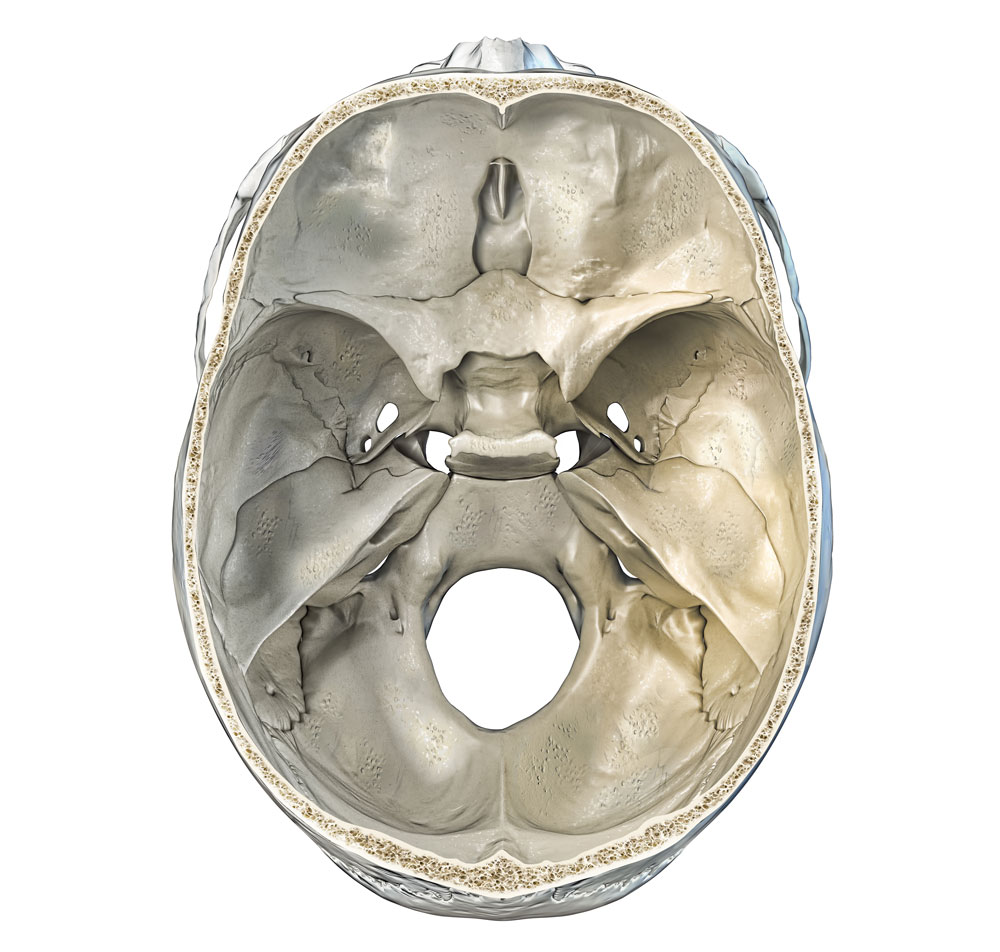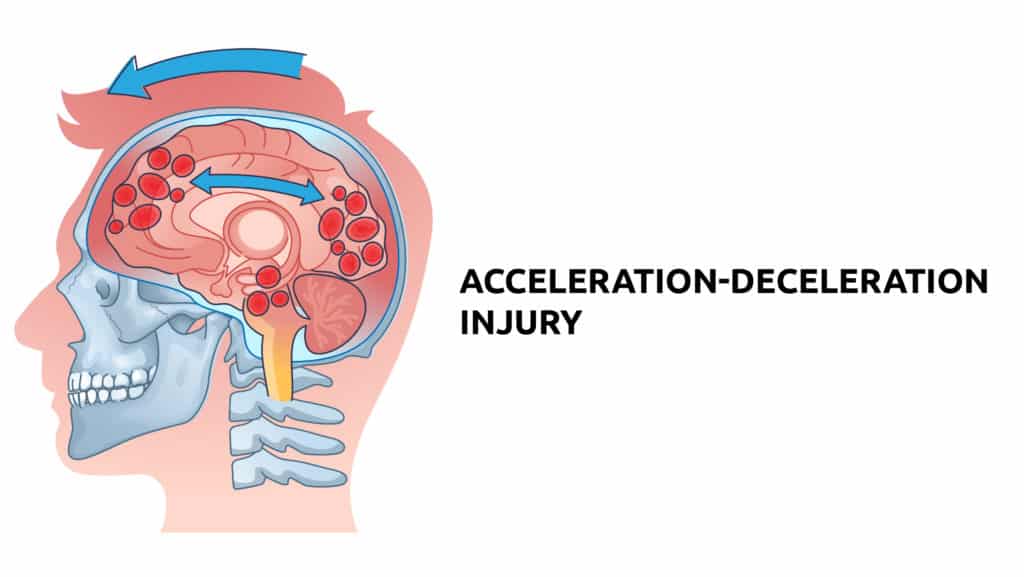Concussions, also known as mild traumatic brain injuries, are far more common than most people realize. Most estimates figure at least 3 million new cases occur in the United States each year, with falls, sports accidents, and car crashes commonly responsible.
But because so many people with mild traumatic brain injury delay or skip medical care—or are simply misdiagnosed—accurate estimates are extremely hard to come by. Worse, there’s a lot of misinformation out there about what kinds of events can cause a concussion, and how severe the long-term symptoms can be.
If you were in a car accident or other potentially traumatic event, and you’re experiencing one or more concussion symptoms (for example, headaches, nausea, “brain fog,” blurry vision, or forgetfulness), could you have a concussion even though you didn’t actually hit your head? The short answer is yes.
In this blog post, we’ll take a closer look at what can cause a concussion, why the term “mild traumatic brain injury” can be so misleading, and how a brain injury attorney can help you pursue (and win) any compensation you may be entitled to.
Why You Don’t Need to Hit Your Head to Have a Concussion

To understand how you can get a concussion without hitting your head, you need to understand a few things about cranial anatomy.
Everybody knows that the brain is located inside the skull. What you may not know is that the brain doesn’t fill the entire space on its own. Rather, the brain is surrounded and cushioned by three layers of protective membranes (called meninges) and a water-like substance called cerebrospinal fluid.
When your head is subjected to a powerful enough force, your brain jostles around inside your head, and can slam into the inside of the skull hard enough to cause damage. This is the fundamental cause of the concussion.
While blunt force trauma to the exterior of the head is often the instigating cause of a concussion, it certainly isn’t a necessary condition.
Common Situations That Could Cause a TBI Without Hitting Your Head
One of the most common examples of this phenomenon is shaken baby syndrome. Infants and toddlers have proportionally large and heavy heads in comparison to the rest of their bodies. If a young child is shaken violently, their brain will bounce back and forth against the inside of the skull. Even five seconds of shaking is sometimes enough to cause permanent brain damage, or even death.

However, the same sort of injury can also occur in adults. Consider what might happen if you were involved in a violent rear-end car crash. The impact force of the other car slamming into yours causes the car to rapidly accelerate and decelerate, and your head to quickly whip back and forth. Even if your head never hits the steering wheel or dashboard, the whiplash alone could easily result in a concussion as your brain strikes the inside of your skull.
What Are the Signs of a Concussion? Did You Suffer One?
A concussion can have a wide range of symptoms, lasting from only a few minutes after the impact to months or even years later. Learning to spot the symptoms can help you get the medical attention you need and, if applicable, begin to put together a personal injury case.
If you experienced any of the following common symptoms in the immediate aftermath of your head injury, it’s possible you suffered a mild traumatic brain injury:
- Loss of consciousness for 30 minutes or less, with anything over 5 minutes generally considered a severe concussion. (But do note that you can still have a concussion even if you never lose consciousness. This is another common misconception about concussions.)
- Temporary anterograde amnesia (for example, inability to remember events immediately following the moment when the concussion occurred.
- Nausea and vomiting
- Slurred speech
- Headaches, blurry vision, and dizziness
- Feeling confused or disoriented
Post-Concussion Syndrome
In most cases, the symptoms of a concussion will gradually diminish until a full recovery is made within 1-3 months. However, a sizable minority, roughly 20 to 30 percent, will still be struggling with concussion-like symptoms more than six months after the injury.
When those who suffer concussions are still dealing with persistent symptoms long after the initial injury, and even after the brain damage seems to have been healed, they may be diagnosed with post-concussion syndrome.
In addition to the symptoms already describe above, people with post-concussion syndrome may be dealing with more severe memory problems, insomnia and extreme fatigue, unexplained mood swings, irritability and anxiety, ringing ears, difficulty concentrating, and more.
Increased Risk of Multiple Concussions
After suffering one concussion, your likelihood of suffering a second concussion, or even repeated concussions, increases dramatically.
A concussion triggers chemical changes in your brain, including an imbalance of potassium and sodium and reduced blood flow that puts the brain in a state of energy deprivation. It can take your brain up to a year to restore the balance, and during that time it will be much more susceptible to damage.
Plus, if you’re also dealing with altered brain function due to persistent post-concussive symptoms, you’re also more likely to suffer an accidental trip, fall, or other incident that could cause a head injury.
If you believe you may have had a concussion, or are experiencing any concussion-like symptoms, it’s crucial that you receive medical attention as soon as you can. Not only can your doctor help you deal with your symptoms and reduce your risk of future concussion injuries, but an accurate diagnosis and solid medical evidence will be necessary if you wish to pursue any kind of personal injury claim.
“Mild” Traumatic Brain Injury Can Be a Very Misleading Term
Brain injuries are medically categorized as either mild, moderate, or severe, with concussions falling on the “mild” end of the spectrum. But that term can be extremely misleading. Even a “mild” TBI can be a serious injury with long-term, life-altering consequences.
It’s important to understand that brain injuries have both primary and secondary effects. When TBIs are initially diagnosed as mild, moderate, or severe, doctors will typically only look at the primary, immediate symptoms, like how long you lost consciousness and whether your altered mental state or post-traumatic amnesia lasted longer than 24 hours.
But just because the primary effects of a traumatic brain injury are on the mild side does not mean secondary effects like mood changes, memory loss, and sleep disorders will be. In fact, recent studies have shown that people who sustained mild TBIs still had high rates of disability five or more years after their head injuries, comparable to those who were diagnosed with more severe head injuries.
Concussion Victims Face Many Obstacles When Pursuing Personal Injury Claims
There is no question that even a supposedly “mild” TBI can have drastic negative consequences on a person’s quality of life. And if your concussion was the result of someone else’s negligence—for example, after a car accident caused by another driver—you deserve fair compensation for your medical bills, lost wages, and the pain and suffering of dealing with your symptoms.
Unfortunately, TBI victims often face significant obstacles from both the insurance company and the legal system. For example:
- Difficulty proving “invisible” injuries. It’s not always easy for a third-party observer to see how severely a concussion can disrupts someone’s life. Many symptoms are self-reported. Even visible signs of brain damage may not show up on an MRI, CT scan, or any other common imaging test, they just aren’t always sensitive to detect microscopic (but still severe) damage to brain structures. If you can’t prove your post-concussive syndrome with robust medical evidence, the insurance company may try to argue that you’re exaggerating your symptoms.
- The original diagnosis was missed or delayed. Mild traumatic brain injuries often get missed by ER doctors, who need to prioritize life-threatening injuries. By some estimates more than half of concussion sufferers who seek emergency medical care don’t have their mild TBI noted on the ER chart, even if they report concussion symptoms.
- Myth and misconceptions. Our scientific understanding of brain injuries has advanced dramatically within the last 20 years. However, many people (including, unfortunately, potential jurors and defense attorneys) still cling to misconceptions that used to be widely accepted—for example, that you can’t have a TBI if you never lost consciousness, or that “mild” TBIs always resolve in 3-6 months and any symptoms beyond that point are likely only psychological.
Crosley Law: The Traumatic Brain Injury Lawyers San Antonio Trusts
Given the significant legal hurdles that must be overcome, we strongly recommend that you work with a personal injury attorney who has extensive experience litigating traumatic brain injury cases.
At Crosley Law, we have a long, successful track record of helping people get the justice they deserve for their brain injuries. Over the years we’ve invested the time and resources it takes to learn the science, build strong relationships with medical experts across the nation, and develop sophisticated investigative and legal strategies. We know what kinds of medical evidence our clients need to provide to convince an insurance company or jury that their injuries are real and serious. And that has translated into real results for our clients.
One of the best examples is Jerry’s story. When Jerry’s MRI results came back normal, the insurance company claimed he just had a mild concussion and was fine, despite obvious behavior, mood, and cognitive effects. We spoke with dozens of top scientists and got Jerry into a research study using an extremely advanced and rare imaging device, which conclusively proved severe brain damage. At trial, we were able to secure at $16 million verdict. Jerry’s story is just one more important example how even a “mild” TBI is often anything but.
In another instance, we represented the family of a very young child who had suffered a traumatic brain injury. Because she was still hitting developmental milestones, the insurance company did not believe her symptoms were serious and refused to offer a fair settlement. Crosley Law worked with a number of medical experts to show how her injury would very likely affect her future brain development, especially executive function, and set the record straight.
Need Help With Your Brain Injury Case? Contact Crosley Law Today
Our team of personal injury experts can ensure you get the quality medical care and legal representation you need and deserve. We’ve handled everything from minor concussions to six and even seven-figure TBI cases. Your initial case review is always free, and if you hire us, you owe us nothing unless we win.
To schedule your free consultation with Crosley Law, complete our online form or call us at 210-LAW-3000 | 210-529-3000.
The content provided here is for informational purposes only and should not be construed as legal advice on any subject.








